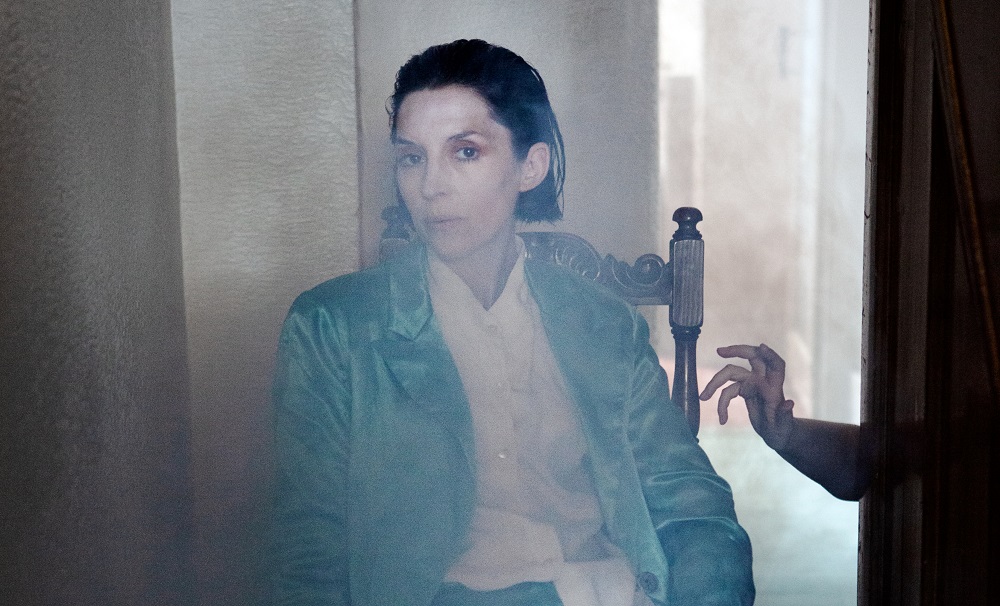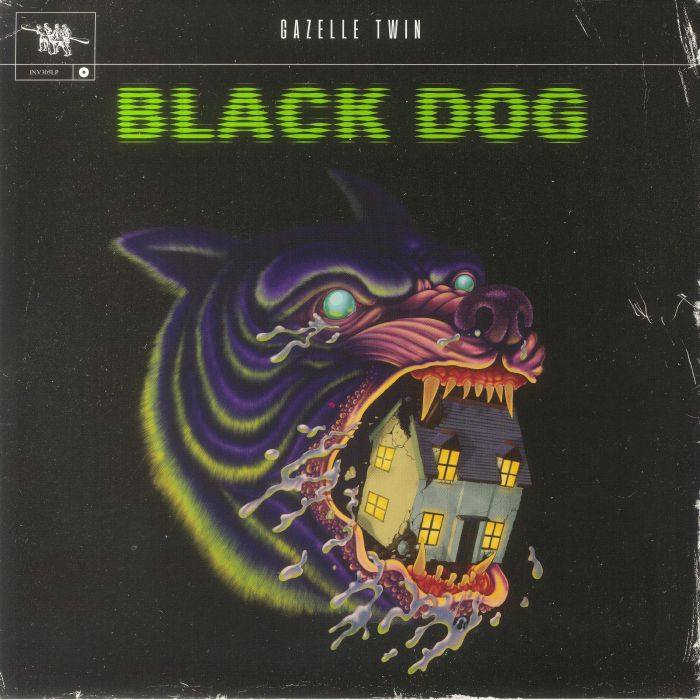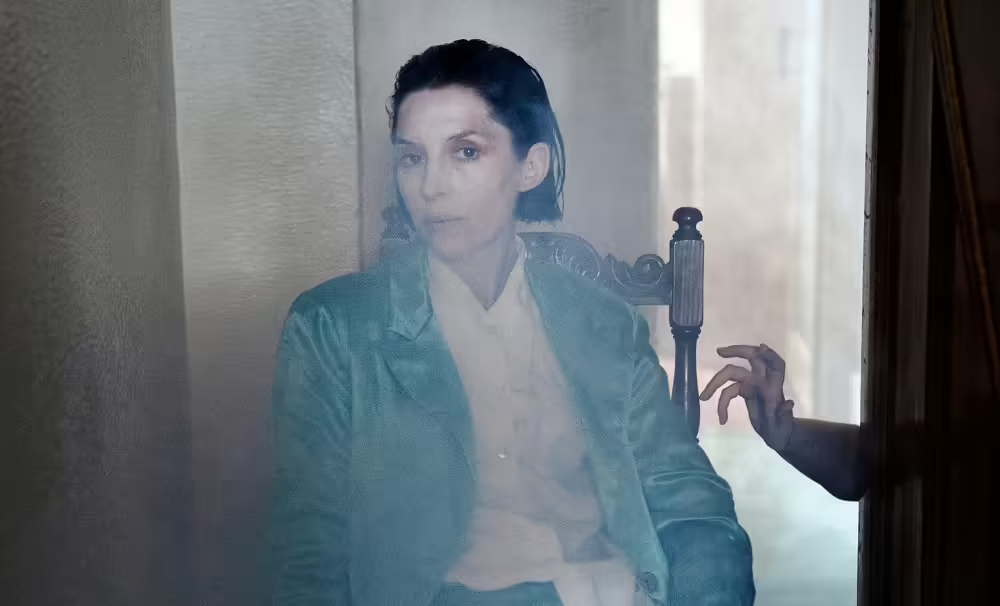Gazelle Twin interview – “I’d always wanted to see – well, half hoped and half been very afraid of seeing – a ghost “ | Juno Daily
Elizabeth Bernholz’s latest faces the childhood fears we never quite shake off

If you think you were freaked out during the pandemic – and let’s face it, most of us were – then spare a thought for Gazelle Twin aka Elizabeth Bernholz.
“During the pandemic I had a sort of double hit of falling pregnant just before it picked up, so I had a Covid baby, I was a lockdown mother,” she tells us from her East Midlands home one bright morning via Zoom. “I’m quite anxious about health and having a baby… well the first baby I had was a big deal. At the same time I was locked away, feeling very safe and nurtured.
“But all of my work was sidelined for a bit, I couldn’t really do much, although funnily enough I was doing some research and development work that was based on seances. But really it’s been a four or five year period of lots of new things happening, new experiences. I was in a really tribal state, you know, basic survival. I’d already set myself off thinking about ghosts and that started with a real fear of ghosts, and I think that is a real tribal thing too, not really understanding the world and what death is and what life is and not really understanding any of it. Big, big questions. Big fears.”
Her new album Black Dog – her fourth to date, excluding other projects such as her film and TV scores and – is not, repeat not, a lockdown album.
“I didn’t want to directly deal with any of that on it,” she states firmly. But the pandemic definitely had an effect that only, much later, is she still figuring out.
Is a post-pandemic album? We ask, as ever looking for a neat tag to define what is essentially a very complex, multi-faceted piece of work. “It is,” she says, really meaning that it has, by definition, arrived in the period of time immediately after, “I mean it is post-pandemic, that the way it’s happened.”
“So I was in that state of anxiety,” she continues, “kind of willingly, given the research into seances and ghosts – but ultimately I didn’t necessarily know where it was going to take me. It wasn’t until I started writing songs that I understood where it led me. It became much more about my childhood fears and adult fear too, and learning to face them, to challenge it and find out more.”
The edgy atmopshere to the album was ably set by its first single ‘Fear Keeps Us Alive’. At the time she spoke of all women feeling anxious about being harmed and how the figure of a ghostly male attacker would haunt her in her dreams.
Its video, shot by longtime collaborator Chris Turner entirely through CCTV cameras, gave it a real tension and a hovering feeling that awful events were just around the corner or mere seconds away. “Because it’s used to observe bad behaviour, that security element,” Bernholz continues, “you’re naturally attuned to seeing something on it, you’re waiting for something to happen, whether it’s people running or fighting or whatever. It’s pretty loaded”
“At the same time there’s loads of parallels with CCTV and ghost hunting, those videos. I’d always wanted to see… well, half hoped and half been very afraid of seeing – a ghost.”
So, we bring out the billion dollar question – has she ever seen one?
“Well, only as a child,” she says, going on to explain that the album title refers to the shadow of a black dog she would see next to her dad’s bed in her childhood home. “I was only there until I was six years old but I still have these quite vivid memories of this shadow. I wasn’t afraid of it and I didn’t know what it was at the time, and it’s was the middle of the night so no-one was awake, it just me laying there looking.”
“I’ve always wanted to see more. I’ve always been fascinated by stories of people who see appartitions or speak to ghosts. In lots of buildings I feel an instant change in the atmosphere. It’s like the air has suddenly gone out of the room. I’ve had in lots of different places – I had it last weekend actually, in an old National Trust site.
“I’ve had it in London too, in a tube station – which is sort of notorious really. It was like walking into a vapour, it was choking me, it took me by surprise, it was really intense. In a couple of music venues I’ve had it too. It does tend to be old buildings, because they usually have a story. It’s just a feeling, but a bad feeling, a panicky feeling. I find that really fascinating, that something might just jang around.”

What is equally fascinating, for us, anyway, is the contrast between the woman we meet via Zoom, who tells us about her manic morning of domesticity – “A treadmill of school and nursery, getting packed lunches and clothes on and getting out the door” – and the usually dark, nightmarish music that she somehow creates in between school runs and teatimes.
When we tell her about the drilling that’s been going on beneath Juno Daily’s first floor offices – that bagel shop had better be worth it – she expresses her sympathy, saying that as a muscian she’s always had that over sensitivity to noise, but recently discovered she has a condition called Misophonia. “It’s common among musicians because we’re turned into sound and there’s no off switch for that, unless you wear ear plugs of course. It’s a nasty thing – it’s not a nice way to live..”
At the same time, a life without music is not one to be considered. “I once knew someone who said they didn’t like music,” she laughs,, “and I was like, er what?”
Drawing on the image of nature fiunding a way to thrive where even the darkest events had taken place – “new things sprouting forward from dead ground” – she seems, perhaps partly due to the harsh self-examination of Black Dog, to have found an equilibrium of sorts. Just as she was – and is – both terrified and fascinated by the thought of seeing a ghost, so the act of making music influenced by the deeper, less comofrtable recesses of her imagination, is both horror and healthiness combined.
“We exist as nature intended and we can’t fight that,” she says, “It’s a strange thing, with the way I make music, it’s actually productive to be not living a brilliant life all the time, but then having the opportunity to make art about it. It’s quite healthy to have in mind something in reserve so that when something bad happens you think ‘oh yes, one day I can use this experience.’ I find that a really healthy thing, for me anyway.”
Ben Willmott
Buy your vinyl copy of Black Dog by clicking here
GAZELLE TWIN LIVE
10 November – London, Bush Hall
16 November – Newcastle, Sage 2
24 November – Brighton, ACCA
24 February 2024 – Bristol Simple Things Festival


